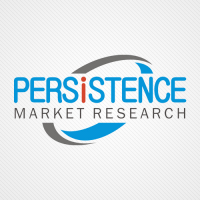Global Growth Hormone Deficiency Treatment Market Expected to Be Biggest Emerging Market by 2022
The Growth Hormone Deficiency Treatment Market report provides in-depth analysis of parent market trends, macro-economic indicators and governing factors along with market attractiveness as per segments. The report also maps the qualitative impact of various market factors on market segments and geographies.

New York, NY -- (SBWire) -- 04/26/2017 --Growth hormone deficiency (GHD) is a medical condition characterized by insufficient production of somatropin, a growth hormone, from the anterior pituitary gland which is responsible for the growth and cell reproduction. Though the exact cause of growth hormone deficiency is obscure, it is considered to be of genetic origin or also it can develop after a trauma, brain injury, due to pituitary tumors etc. Children with growth hormone deficiency show retarded growth and sometimes delayed puberty. Symptoms of growth hormone deficiency vary among adults and children. The predominant symptom in children is that the child is abnormally shorter than other children of his age with or without compromise in the cognitive intelligence while in adults, growth hormone deficiency may lead to fatigue, tiredness, anxiety and depression. Growth hormone deficiency is treated with growth hormone injections on daily or weekly basis although the effects of therapy starts showing after 2-3 months of therapy.
A Sample of this Report is Available Upon Request @ http://www.persistencemarketresearch.com/samples/9962
The primary factor contributing to the growth of global growth hormone deficiency treatment market is increasing incidence of growth hormone deficiency syndrome. Several other factors which may cause the global growth hormone deficiency market to grow include changing lifestyle, prevalence of other genetic disorders and incidence of GHD in adults. However, high cost of treatment will always remain the major restraint for global growth hormone deficiency treatment market.
Surgeries in treatment of growth hormone deficiency treatment are rarely performed. Recombinant human growth hormone sub-segment of pharmacological therapy treatment type is expected to hold major share in the global growth hormone deficiency treatment market due to increased patient compliance. Home care settings' end user segment occupies significant proportion of global growth hormone deficiency treatment market owing to the nature of a therapy requiring daily dosage administration. Introduction of new medicines such as Saizen solution is anticipated to expand the market growth of global growth hormone deficiency treatment market over the forecast period of 2016-2026.
Geographically, the global growth hormone deficiency treatment market is segmented into five key regions: North America, Latin America, Europe, Asia Pacific, and Middle East & Africa. North America is expected to contribute largest market share in global growth hormone deficiency treatment market followed by Europe. Emerging markets such as China, India, and Brazil are expected to present good opportunity for growth hormone deficiency treatment market due to entrance of key players into the market.
Request to View Tables of Content @ http://www.persistencemarketresearch.com/toc/9962
Some of the major players in the global growth hormone deficiency treatment market include Sandoz International GmbH, Sanofi Aventis, Pfizer, Novo Nordisk A/S, Teva Pharmaceutical Industries Limited, Ranbaxy, EMD Serono, Inc., Sun Pharmaceutical Industries Ltd., Eli Lilly and Company and others.
Media Relations Contact
Rahul Singh
Marketing Manager
Persistence Market Research Pvt. Ltd.
646-568-7751
http://www.persistencemarketresearch.com/market-research/growth-hormone-deficiency-treatment-market.asp
View this press release online at: http://rwire.com/799653